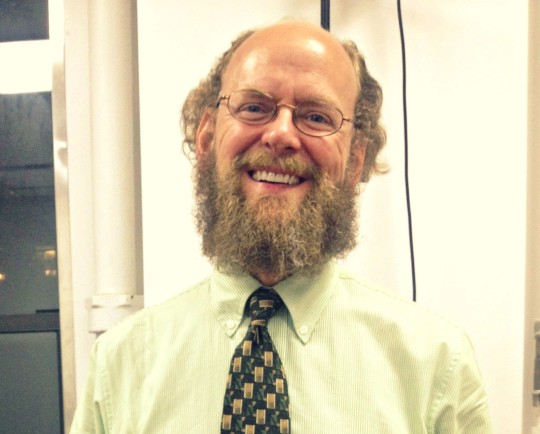
An Interview with Philosopher and Author Bryan Frances
An incomplete list of absurd things:
Donald Trump
The NBA
Climate Change
Suicide Bombers
Life
Bryan Frances is a former professor of philosophy at the University of Leeds in England and Fordham University. He is the author of three books: Scepticism Comes Alive, Disagreement, and Gratuitous Suffering and the Problem of Evil. Frances has also written dozens of essays on topics ranging from the rationality of religious belief, to how and why people disagree, to “radical skepticism,” the belief that nothing is truly knowable. In his writing, Frances is measured and objective. He seems to revel in dealing with opinions that oppose his own, treating them with as much respect as he gives himself. As he writes in Disagreement, “Unless you are delusional, you are aware that a great many of the people who disagree with you are just as smart and thoughtful as you are—in fact, you know that often they are smarter and more informed.”
Frances has spent much of his career writing about issues that can be connected to the philosophy of absurdism. As expounded by French writer Albert Camus in his landmark essay, The Myth of Sisyphus, absurdism rests on three truths. One: we want life to have meaning. Two: life has no meaning as far as we can tell. Three: those truths in conflict make life absurd. People deal with that conflict, according to Camus, in one of two ways. Some commit suicide, negating the absurdity of life by ending it. Others commit “philosophical suicide,” by turning to religion, negating absurdity by giving life meaning no one can prove it has. Camus offers a third way to deal with absurdity—acceptance. His answer to the absurd conflict is to acknowledge it, reject all hope, and revolt by living a full life in spite of it.
I met Frances at Blue Ribbon Downing Street bar in the West Village, Manhattan, where we discussed absurdism as it pertains to three current issues: suicide bombing, Donald Trump, and global warming.
—Travis Atria
I. I TRY NOT TO BE A DICK TO PEOPLE; I TRY NOT TO KILL PEOPLE.
THE BELIEVER: I’m interested in Camus’ idea of the ways people deal with absurdity—suicide and philosophical suicide—in the context of suicide bombings. By Camus’ understanding of the terms, it seems like both at the same time.
BRYAN FRANCES: Let me talk about absurdity. There’s moral absurdity, and that has a couple of components, which I’ll talk about in a second. There’s intellectual absurdity. There’s political absurdity. When it comes to moral absurdity, it has two components. One is, if you’re...
You have reached your article limit
Sign up for a digital subscription and continue reading all new issues, plus our entire archives, for just $1.50/month.
Already a subscriber? Sign in




